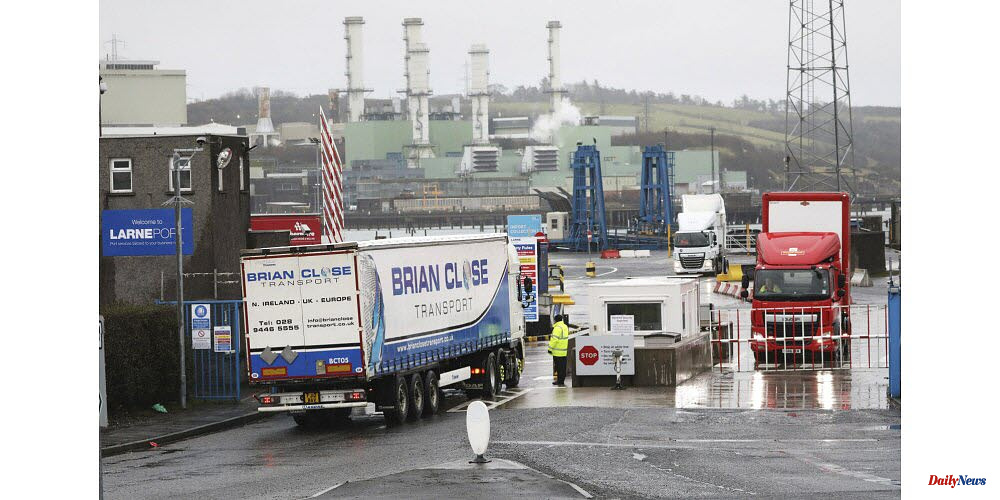After months of inaction, the British government presented Monday's bill to Parliament. It calls into question Northern Ireland's post-Brexit status.
The EU threatened London with legal action in the course of the proceedings, believing its initiative was detrimental to " mutual trust". Boris Johnon's government is not content to wait, given the political paralysis wrought by the Northern Irish protocol in the British provincial. He threatened to unilaterally override the international treaty he had negotiated and signed.
The text, which could take several months to pass, "will end this untenable condition where the peoples of Northern Ireland are treated different from the rest of UK, will protect our supremacy of our judiciaries and our territorial integrity", says Liz Truss, head of British diplomacy.
She reiterated that London was open to a negotiated resolution, but only if the EU agreed to "change the protocol" and not simply adjust it as it is.
This protocol was initially negotiated in the context of Brexit. It aims to protect one European market with the United Kingdom's departure without causing a return of a physical demarcation. It could also threaten the peace on the island that has been achieved since 1998's Good Friday Agreements between the unionists (supporters of Northern Ireland being kept in the United Kingdom) as well as the nationalists, who are defenders of a reunification of Ireland.
This bill, which creates a new status in Northern Ireland, enables goods to circulate and remain within the United Kingdom through a "green channel". They are free from all administrative procedures. All controls and checks applicable to goods destined for the EU are still in place.
A joint letter was signed by elected officials representing the majority of Northern Irish Local Assembly parties (including Sinn Fein), in which they stated that they "reject in the strongest possible terms" British law. They believe that the protocol, even if it is not perfect, provides the only protection against the impacts of Brexit and also offers an economic advantage with "access to two major markets".












